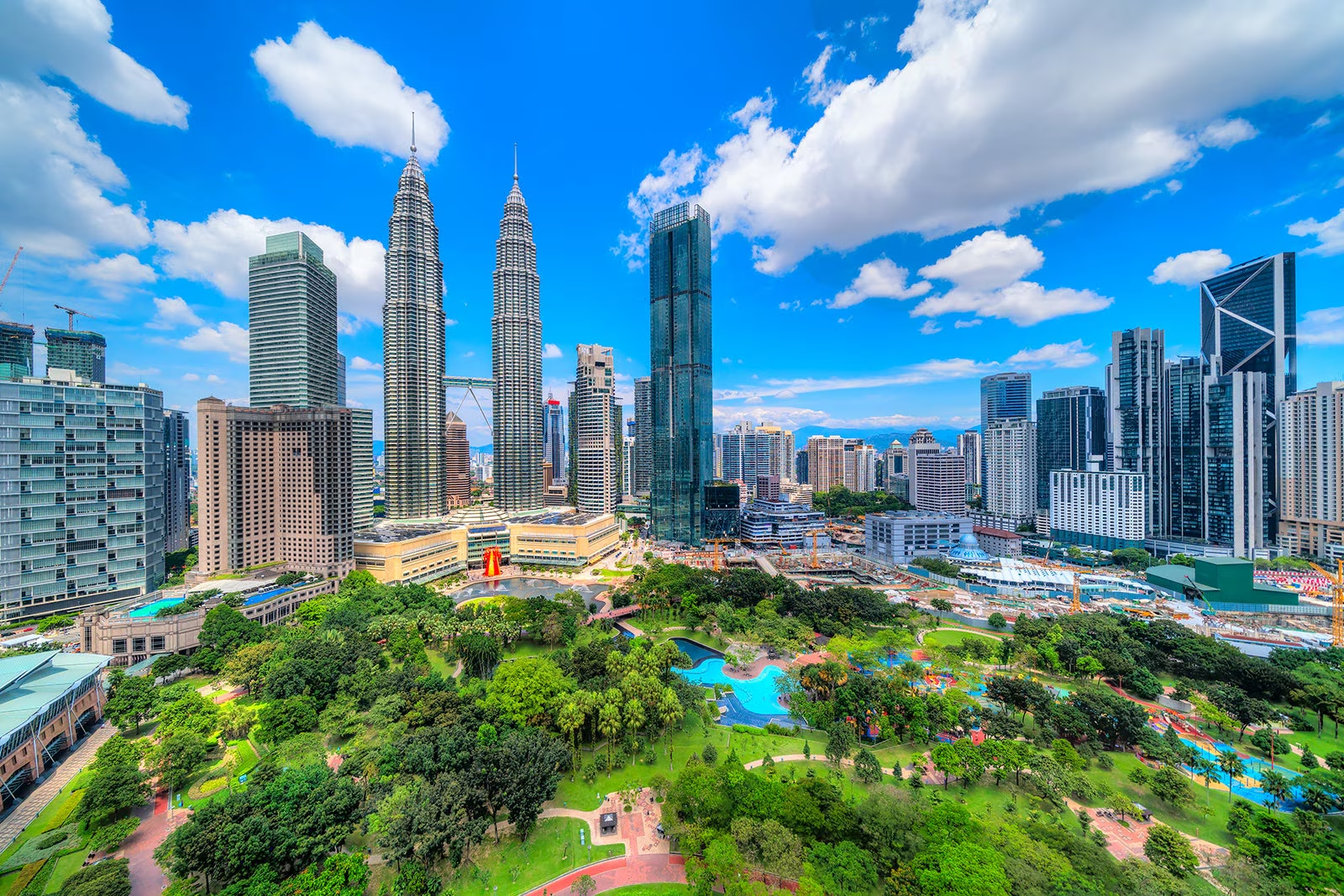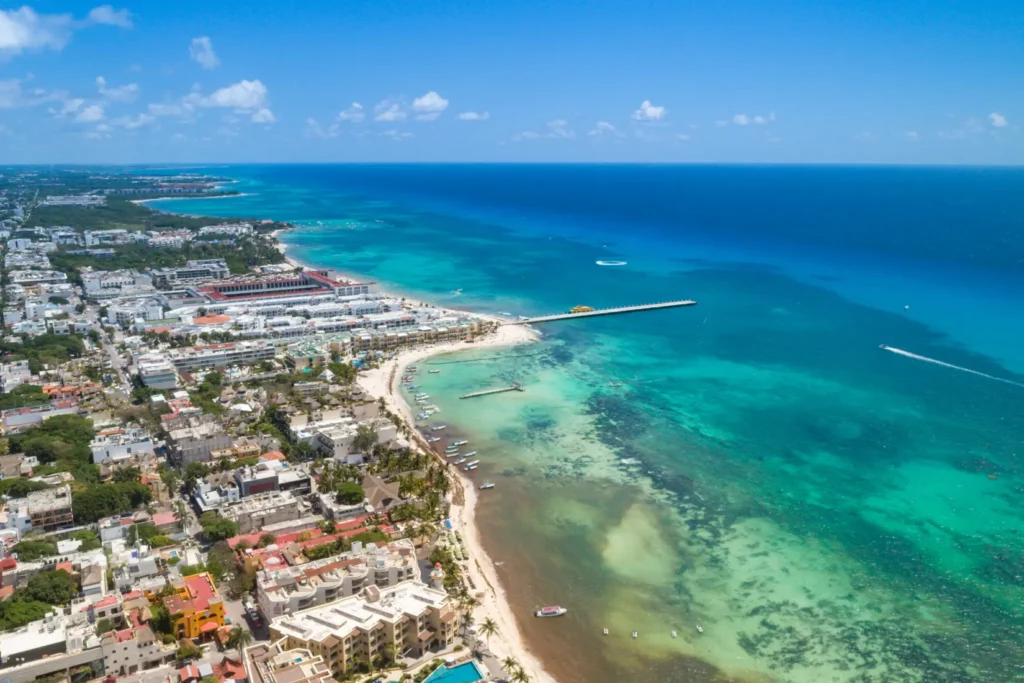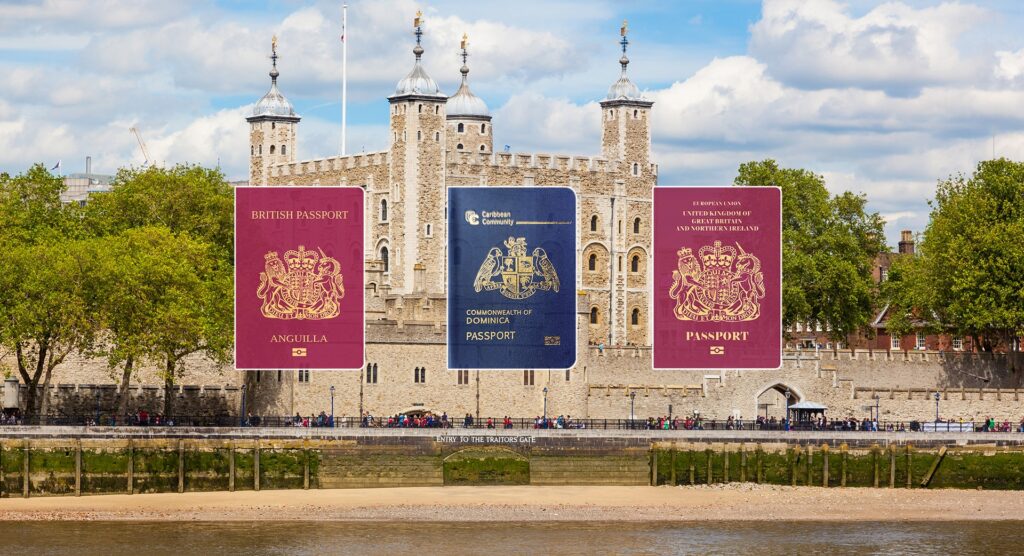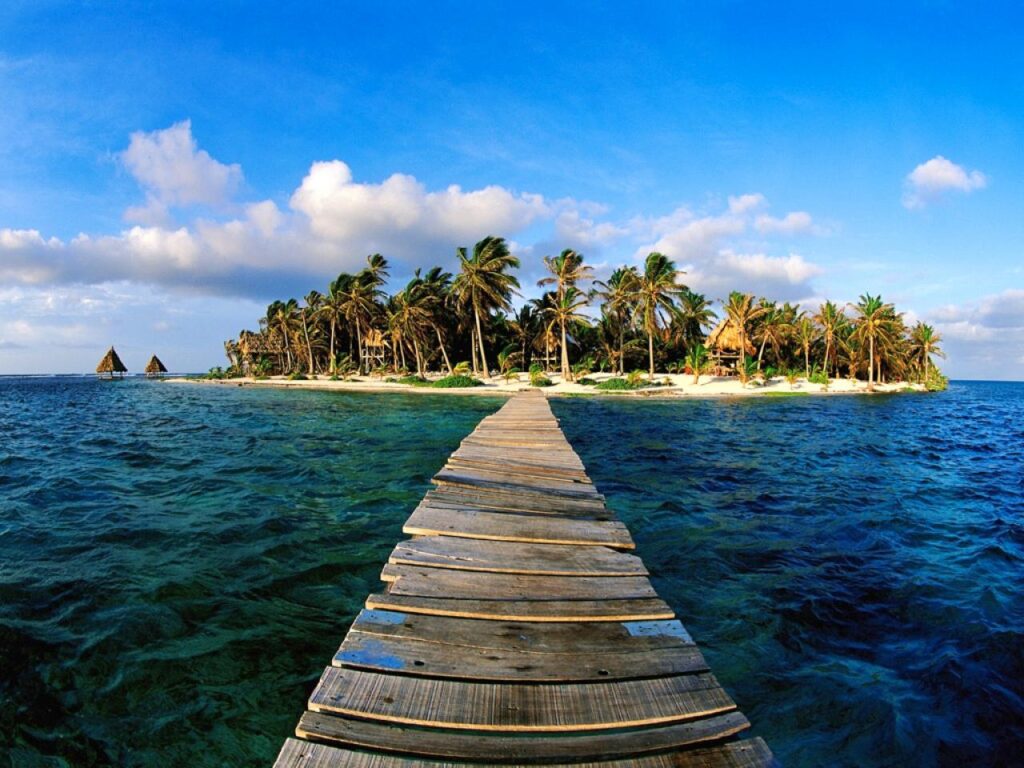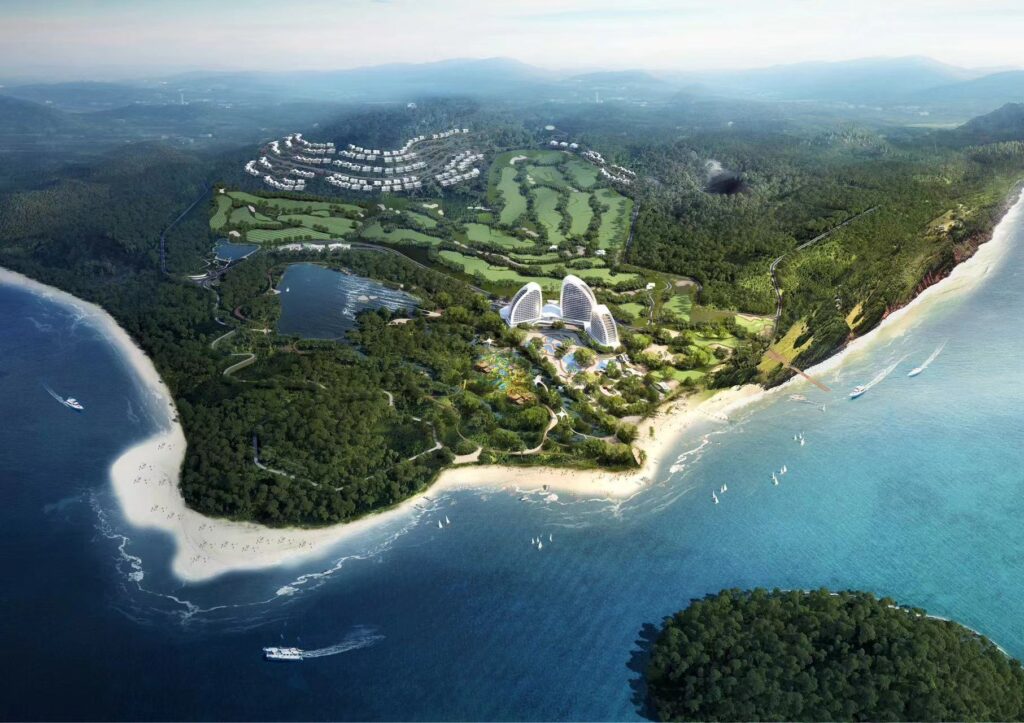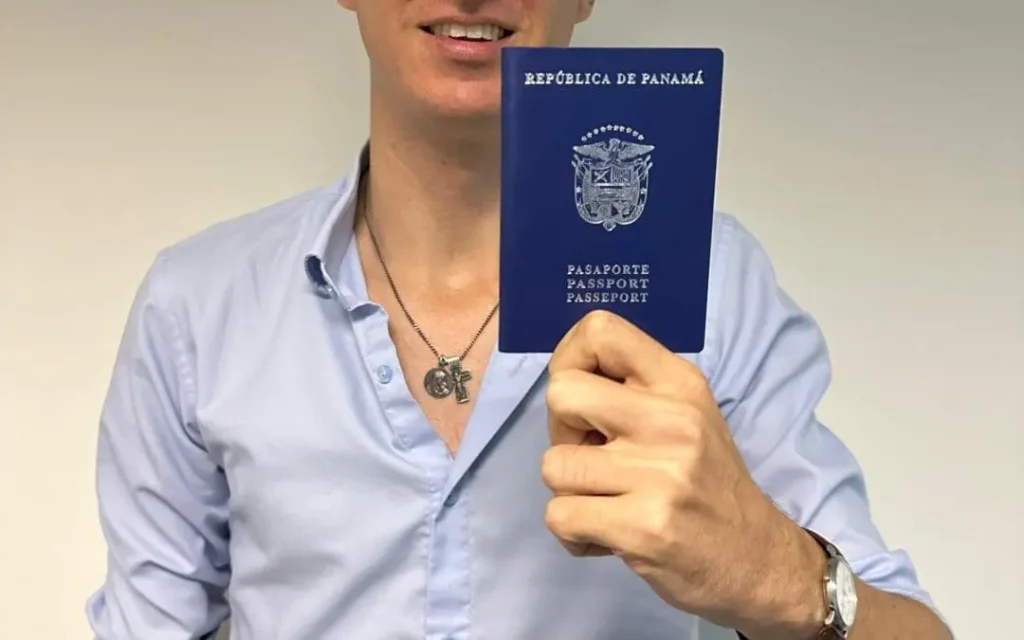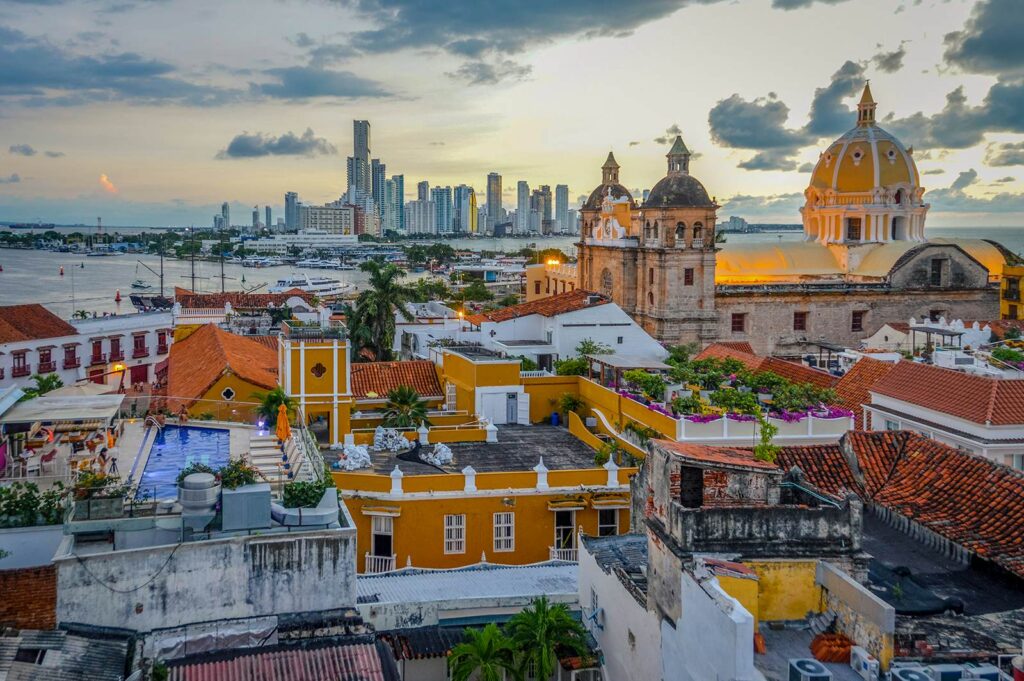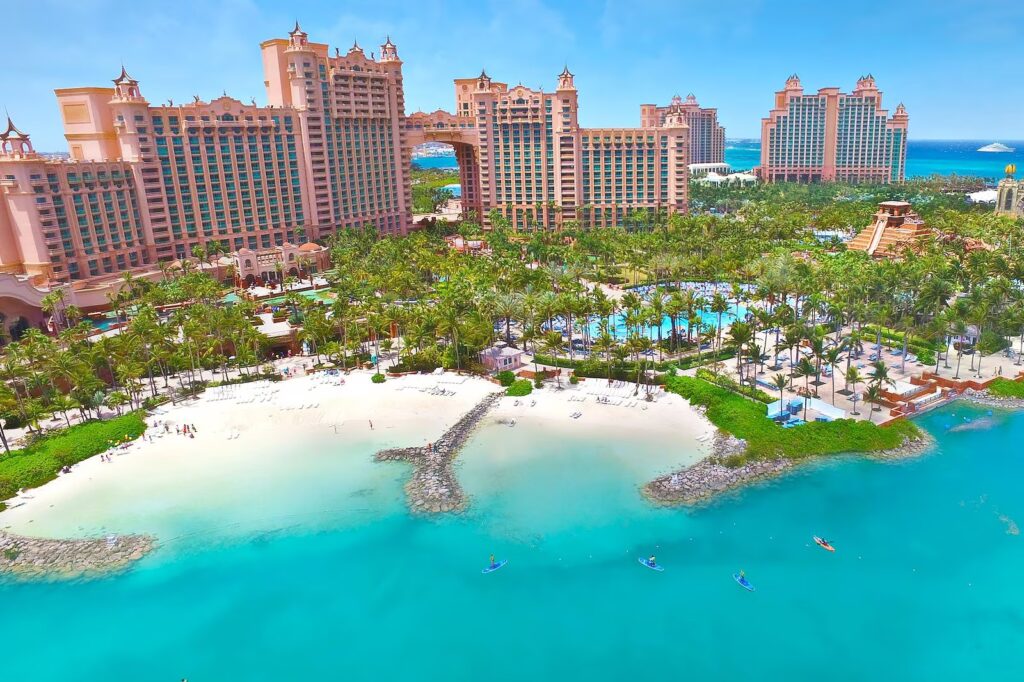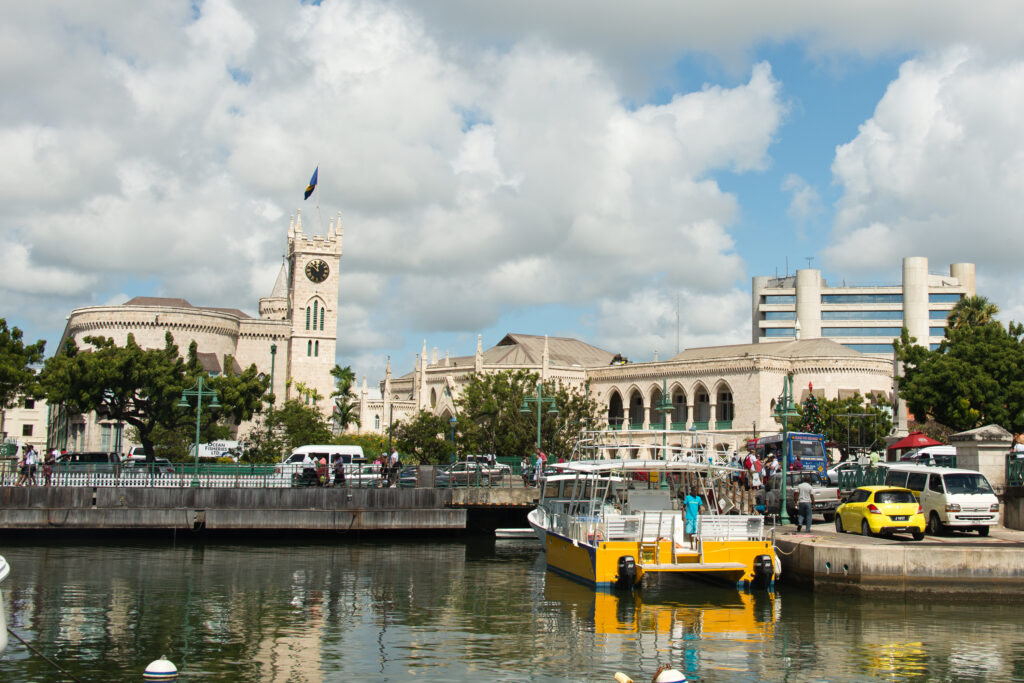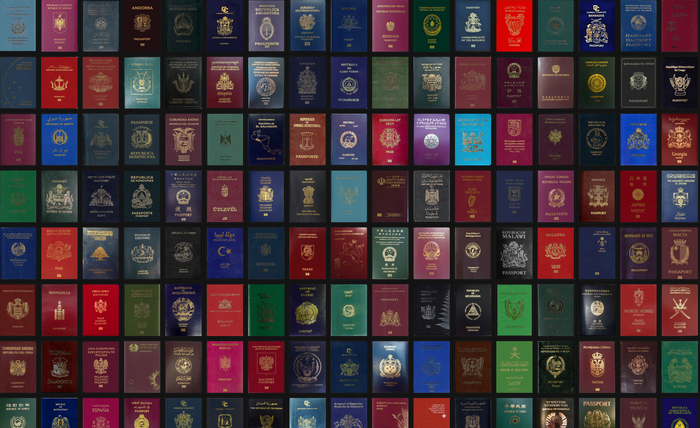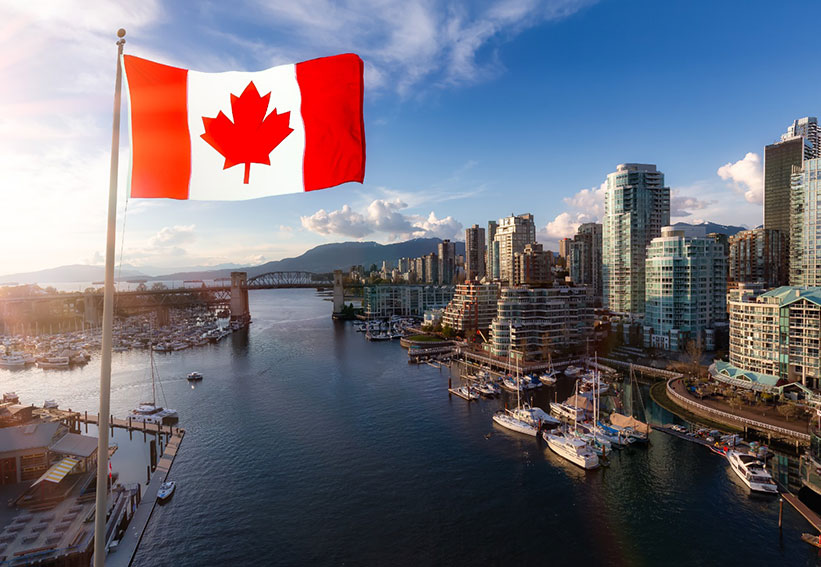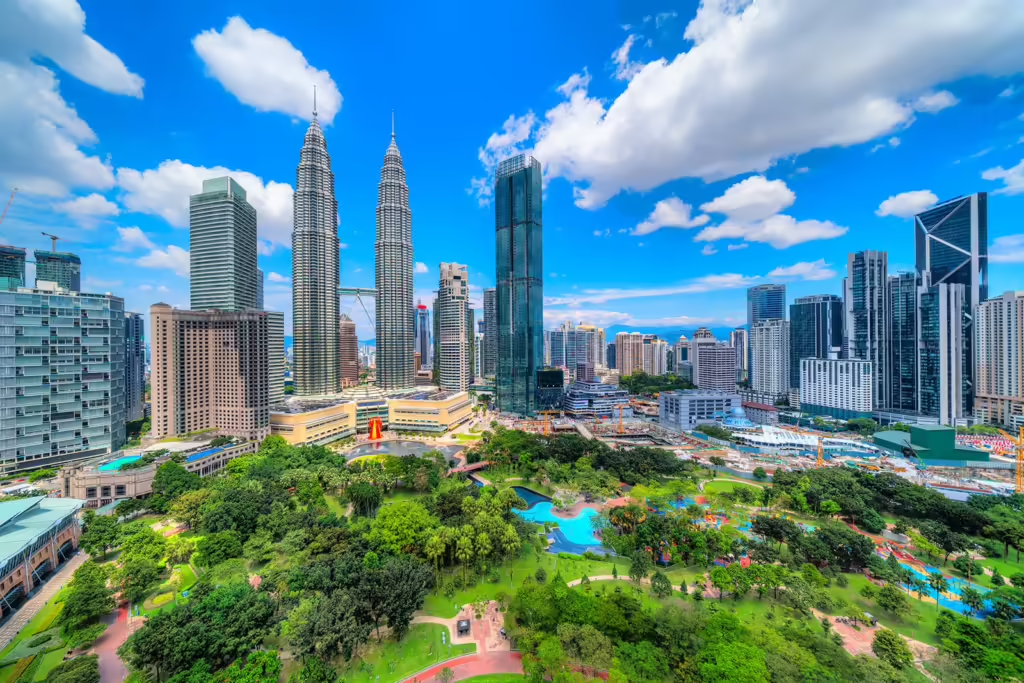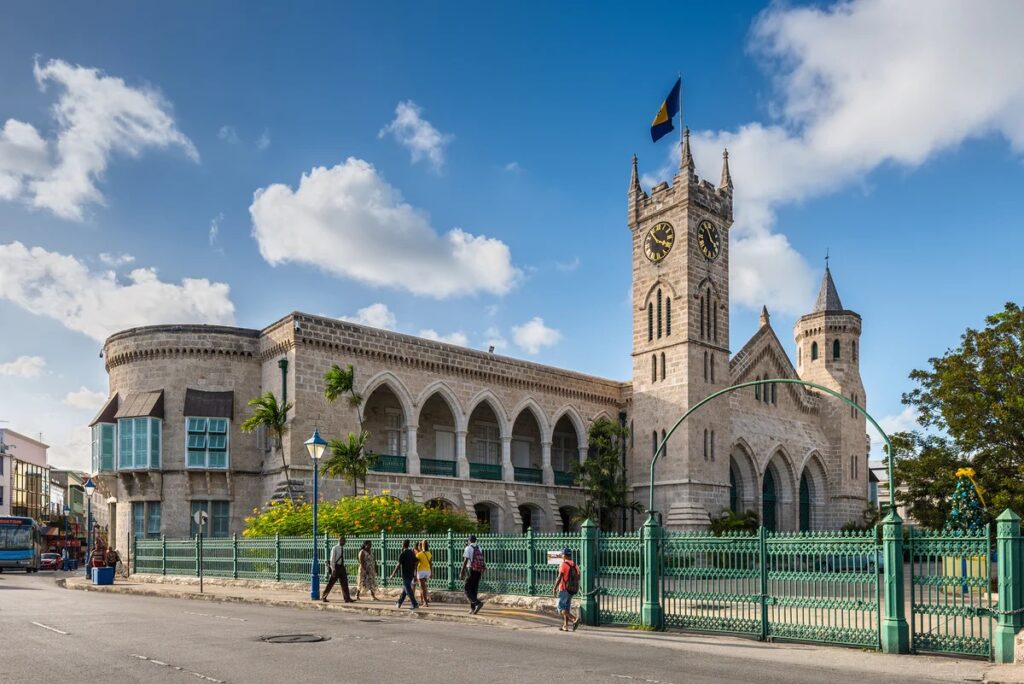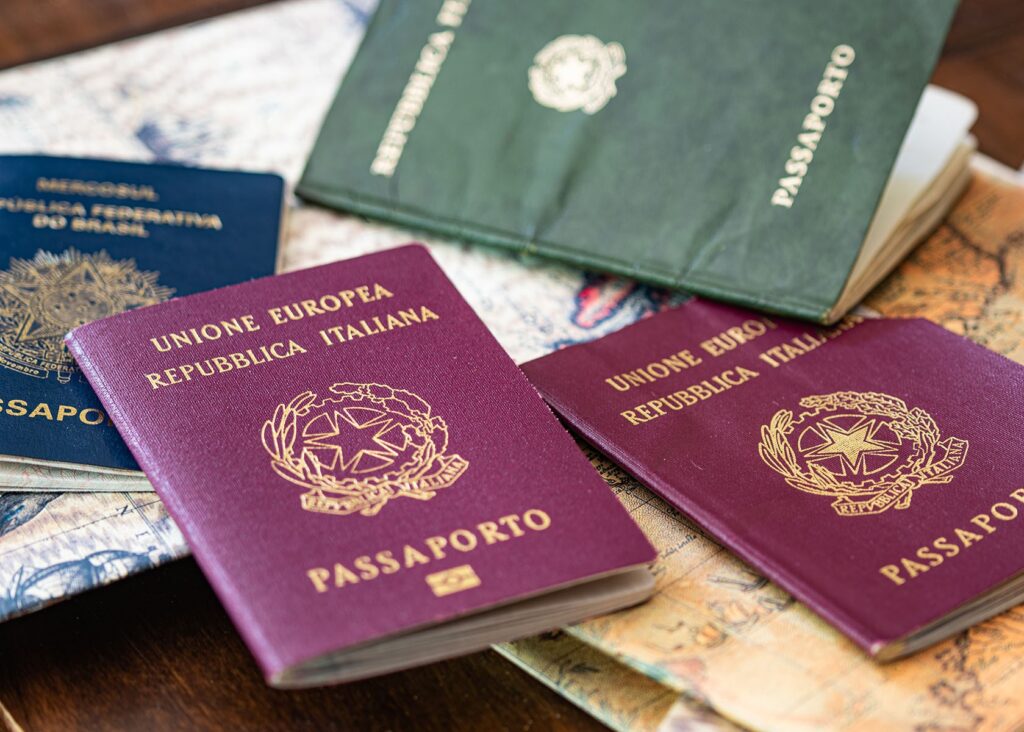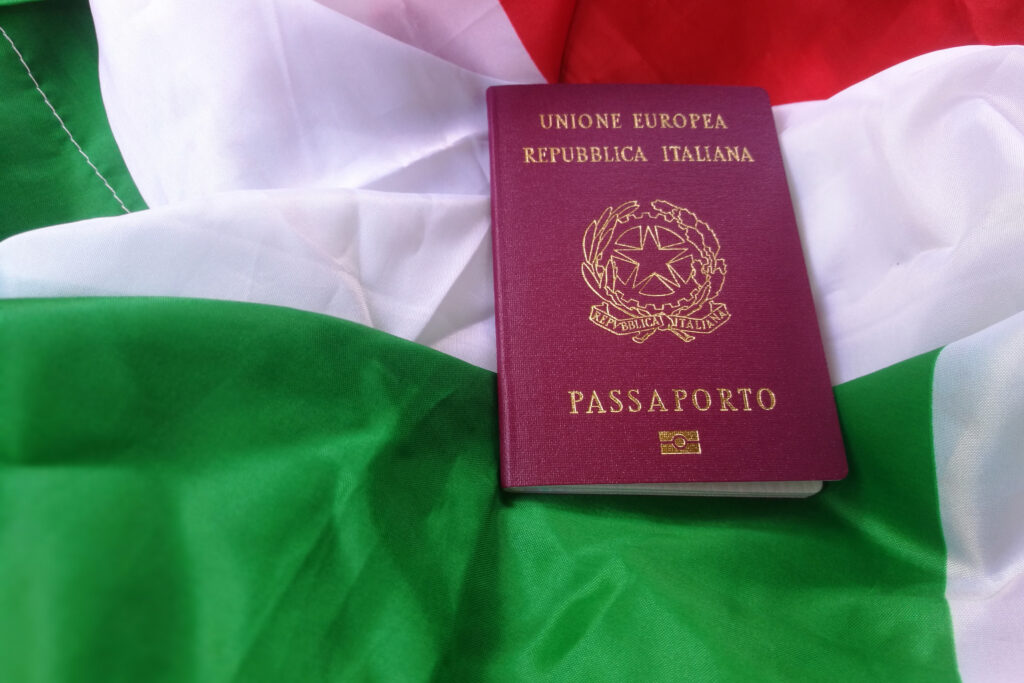The Malaysia My Second Home (MM2H) programme offers an incredible opportunity for digital nomads, entrepreneurs and investors who wish to live in the country long-term. With its developed infrastructure, diverse culture, tax advantages (Labaun is especially a tax haven), and relatively low cost of living, Malaysia has become a favoured destination for expatriates around the globe. The MM2H program allows you to enjoy the perks of living and investing in Malaysia with few restrictions.
Understanding the eligibility criteria is crucial before embarking on this journey. To qualify for MM2H, applicants must meet certain financial and medical insurance requirements to comfortably live in Malaysia without burdening the country’s resources. Additionally, successful applicants are granted a multiple-entry social visit visa, remarkably simplifying travel in and out of Malaysia.
Participating in the MM2H program offers multiple benefits. Participants enjoy multiple tax incentives, duty-free importation of personal belongings, and even preferential rates on vehicle purchases. Residents can bring their spouses and children under 21 as dependents, providing an excellent opportunity for families looking to experience life abroad together. Whether embracing a more relaxed lifestyle or seeking new business opportunities, MM2H opens doors to a world of possibilities within the heart of Southeast Asia.
Overview
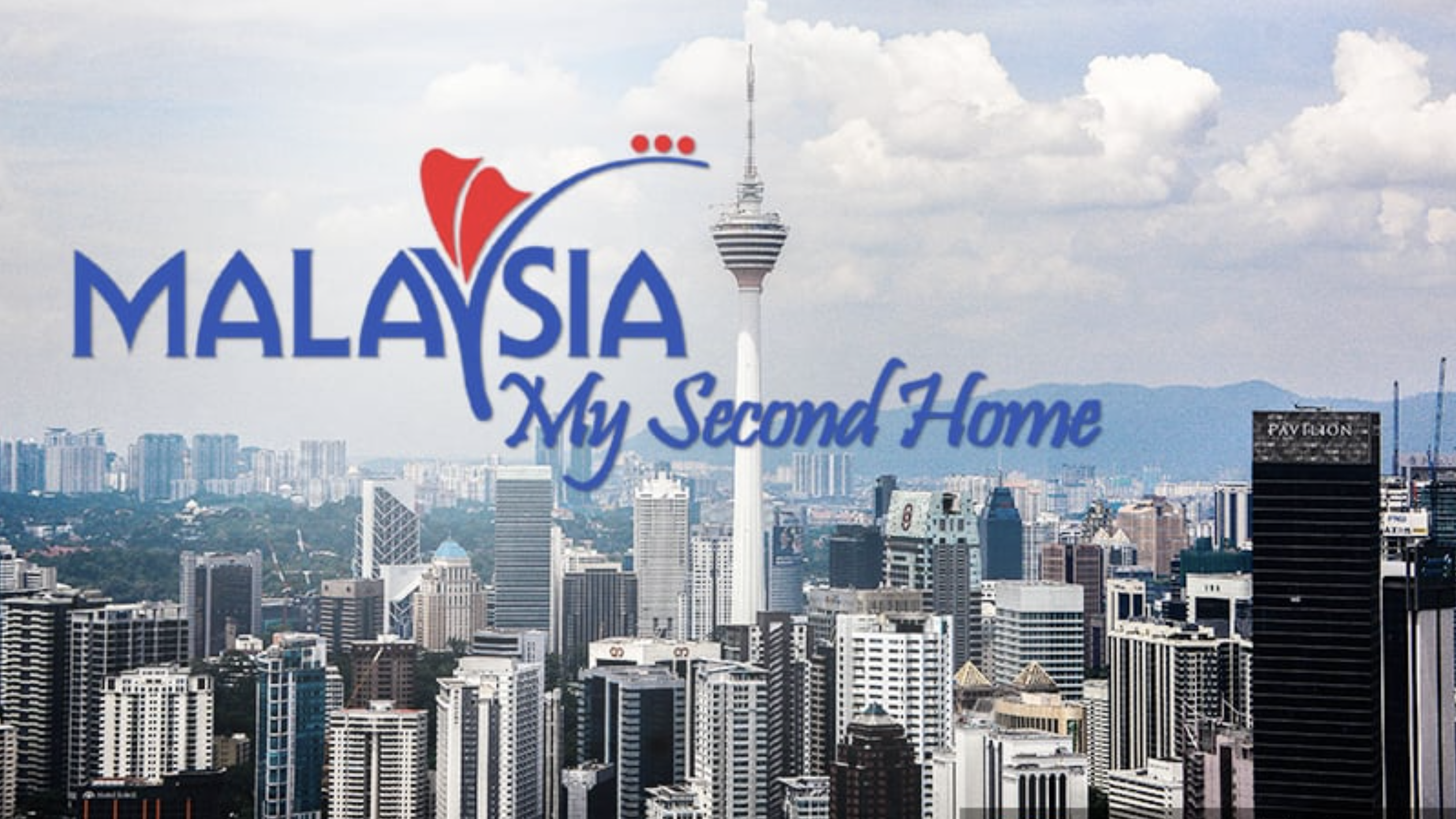
The Malaysia My Second Home (MM2H) programme is an initiative by the Malaysian government to allow foreigners to live in the country long-term. Since its inception, it has attracted individuals from all over the world, looking for a serene and inviting place to retire or even work remotely. This unique scheme provides non-Malaysians a renewable ten-year visa, essentially offering a hassle-free pathway to making Malaysia their second home.
Attracting a diverse crowd, the MM2H programme boasts numerous benefits that cater specifically to expatriates’ needs. Among these are:
- A relatively low cost of living compared to Western standards,
- Access to high-quality healthcare services,
- The freedom to purchase property,
- And a stable political environment.
These aspects combined make Malaysia an attractive destination for those looking to relocate.
Application requirements are straightforward yet thorough, ensuring applicants can financially support themselves during their stay without taking employment in Malaysia. Applicants must meet certain financial criteria such as having a minimum required amount in their bank account and proving they receive enough income monthly. The exact requirements vary depending on the applicant’s age group.
Cultural diversity is another hallmark of the Malaysian experience under MM2H. Residents enjoy a fusion of Malay, Chinese, and Indian cultures, which reflects in every aspect of life here—cuisine, festivals, or everyday interactions. English is widely spoken, which makes settling down easier for expatriates.
Thanks to its strategic location, living in Malaysia offers an unparalleled opportunity to explore Southeast Asia. Direct international flights from the UK, Europe, Dubai, and Asian countries like Thailand, Singapore, and Indonesia are short flights away, making it an ideal base for adventurers and business travellers alike.
With these features and more awaiting you under the MM2H programme, it’s no wonder why many have chosen Malaysia as their second home, finding both adventure and tranquillity within its borders.
Recent Changes to the MM2H Program
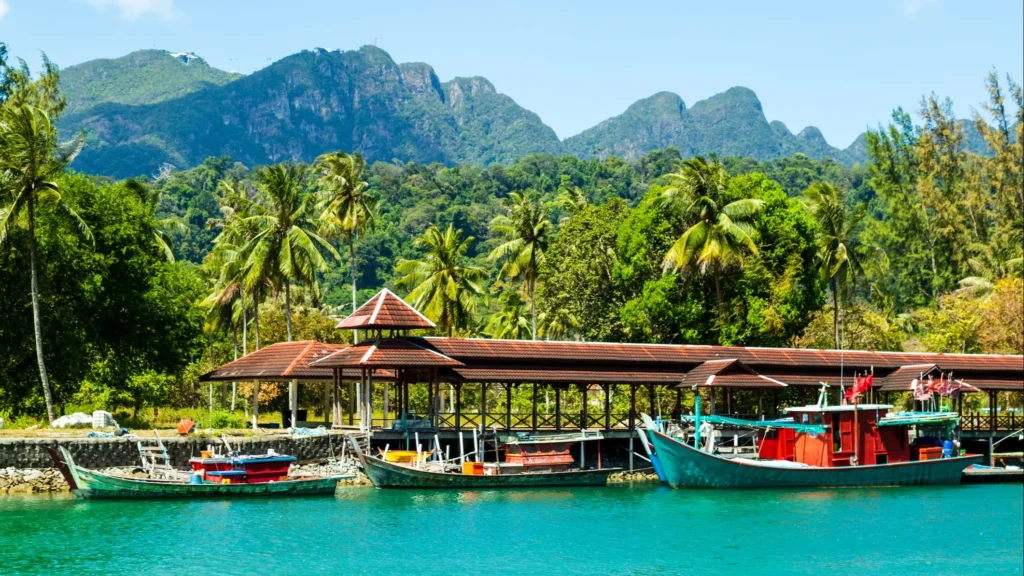
With Malaysia’s My Second Home (MM2H) program attracting global citizens looking for a long-term stay option, it’s crucial to stay updated on its recent changes. The Malaysian government has revised the program criteria, aiming to attract genuine, high-quality participants who can contribute positively to the local economy.
One of the most significant alterations involves financial requirements. Applicants must now show proof of significantly higher liquid assets.
Here’s a quick glance at how these numbers stand:
Updated MM2H Program Requirements (October 2023)
| Tier | Deposit Amount | Duration | Additional Benefits |
|---|---|---|---|
| Silver Tier | MYR 500,000 | 5 years (renewable) | Deposit withdrawal for education, healthcare, or home purchase (Min. home price MYR 750,000) |
| Gold Tier | MYR 2 million | 15 years (renewable) | Deposit withdrawal for education, healthcare, or home purchase (Min. home price MYR 750,000) |
| Platinum Tier | MYR 5 million | Permanent residency | Deposit withdrawal for education, healthcare, or home purchase (Min. home price MYR 1.5 million) |
General Eligibility and Terms
Minimum age: 30 years old
Parents and in-laws over 60 years can be included as dependents
Dependent children: Maximum age is 34, unmarried, and not working in Malaysia
Annual physical presence required: 60 days for applicants aged 30-49; 60 days for applicants and spouse if aged 50+.
Additionally, the monthly offshore income requirement has seen an uptick. Applicants must demonstrate a minimum monthly income from abroad of MYR 40,000 – a substantial increase from the earlier MYR10,000 threshold.
Another key change concerns property investment. While previously, MM2H visa holders were not required to invest in property, they are now encouraged to do so with incentives if they invest at least MYR1 million in Malaysian real estate.
Property Investment Encouragement
- Participants are now encouraged to invest in property, and incentives are provided for investments of at least MYR 1 million in Malaysian real estate. This new threshold aims further to integrate expatriates into the local economy and community fabric.
Purpose of Changes
- These adjustments to the MM2H program are designed to streamline the application process and ensure that participants are financially well-prepared to contribute to Malaysia’s economy. The goal is to attract high-quality applicants who can afford long-term residence and are likely to invest in the local community.
These adjustments aim to streamline applicants and ensure that those who take this route are well-equipped financially and ready to contribute substantially during their stay.
The duration of the visa has also been modified; previously granted for ten years under certain conditions, it is now reduced to five years. This move aligns with international norms and addresses security concerns while still offering ample time for participants to enjoy their second home in Malaysia.
Understanding these changes is essential whether you’re contemplating applying for or renewing your MM2H visa. They reflect Malaysia’s commitment to creating a balanced expatriate community that benefits both visitors and locals.
Benefits of Malaysia My Second Home Programme
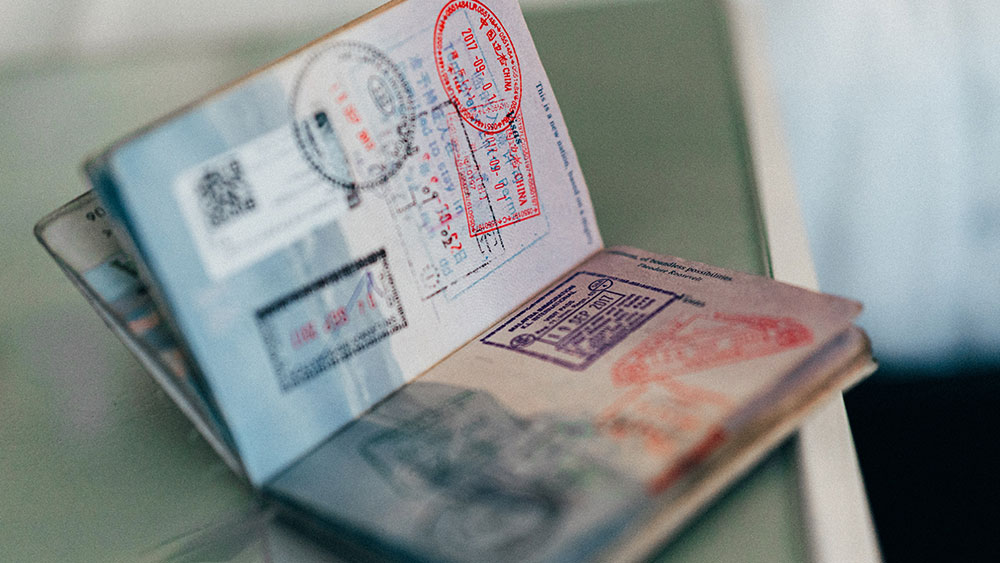
Long-Term Multiple Entry Visa
Imagine having the freedom to come and go as you please, exploring all Malaysia offers without the hassle of constantly reapplying for visas. That’s exactly what you get with the Malaysia My Second Home (MM2H) programme. Successful applicants receive a long-term multiple-entry visa, valid for up to ten years and renewable. This means you can make Malaysia your base for travelling within the country and to neighbouring Southeast Asian nations, turning your expatriate life into an endless adventure.
Straightforward
The application process for MM2H is designed to be as straightforward as possible, removing many of the bureaucratic hurdles typically associated with moving abroad. You must only meet certain financial criteria, such as demonstrating adequate financial resources and a steady income source. Unlike other countries where paperwork can become overwhelming, Malaysia’s approach ensures you spend less time filling out forms and more time enjoying your new home.
Once you meet these requirements and submit your application, you’ll be on your way to starting your new life in Malaysia.
Potential Tax Advantages
Opting for Malaysia as your second home can be financially prudent due to its significant tax advantages. Malaysia employs a territorial tax system, meaning that income from outside the country is not subject to Malaysian tax unless remitted into Malaysia. This policy can result in considerable savings for many expatriates and retirees who maintain income sources abroad.
Updated Tax Highlights:
- No Inheritance Tax: Malaysia does not impose an inheritance tax, which makes it an appealing destination for those looking to pass on assets without hefty taxes.
- No Capital Gains Tax on Personal Assets: The absence of capital gains tax on personal assets in Malaysia is another financial benefit that can lead to substantial savings over time.
- Foreign-Sourced Income: Income earned outside of Malaysia and not brought into the country is not taxed. This allows expatriates to manage their finances more efficiently and maximize their savings.
Labuan – Malaysia’s Premier Tax Haven
Labuan, part of Malaysia, is recognized as a prominent tax haven that offers additional tax incentives for businesses and individuals. Located off the coast of Borneo, the Labuan tax haven provides a unique economic environment with the following benefits:
- Low Corporate Tax: Companies in the Labuan tax haven enjoy low tax rates, with trading companies paying only 3% of audited net profits or a flat rate of MYR 20,000.
- No Personal Income Tax for Certain Categories: Individuals employed in managerial or technical positions in a Labuan company can benefit from zero personal income tax.
- Flexible Business Regulations: The Labuan tax haven offers liberal investment policies and easier incorporation processes, making it an attractive hub for international business and financial services.
- Privacy and Confidentiality: Labuan ensures high levels of privacy and security for businesses, which is a key characteristic of a reliable tax haven.
These tax regulations and the specific advantages offered by Labuan are part of Malaysia’s commitment to creating a favorable economic environment. This environment not only attracts foreign residents looking for a high standard of living but also offers excellent financial benefits, positioning Malaysia as a top destination for expatriates globally.
Developed Country
Malaysia offers all the comforts and conveniences expected from a developed nation but at a fraction of the cost in Western countries. It boasts world-class infrastructure, modern healthcare facilities offering excellent medical care at reasonable prices, international schools for expat children providing quality education alongside local students, plus shopping malls packed with global brands alongside traditional markets selling fresh produce and local handicrafts—the best of both worlds!
Living here means experiencing vibrant multicultural festivals first-hand while enjoying everyday conveniences like efficient public transport systems, including modern rail networks connecting major cities across Peninsular Malaysia:
Infrastructure & Healthcare:
- Advanced Infrastructure: Malaysia boasts an extensive and modern transportation network, including efficient public transit and rail networks connecting major cities across Peninsular Malaysia. This makes commuting and travelling within the country both convenient and affordable.
- Exceptional Healthcare: With state-of-the-art healthcare facilities, Malaysia offers excellent medical care at reasonable prices. The healthcare system is equipped to provide both advanced medical treatments and routine health services, ensuring that both expats and locals have access to quality healthcare.
- Educational Excellence: International schools abound, offering expatriate children high-quality education that aligns with global standards. These schools provide a diverse environment where expat children study alongside local students, fostering a multicultural educational setting.
- Retail and Lifestyle: From sprawling shopping malls featuring international brands to traditional markets where locals sell fresh produce and unique handicrafts, Malaysia offers a rich tapestry of shopping experiences that cater to all tastes and budgets.
Eligibility Criteria
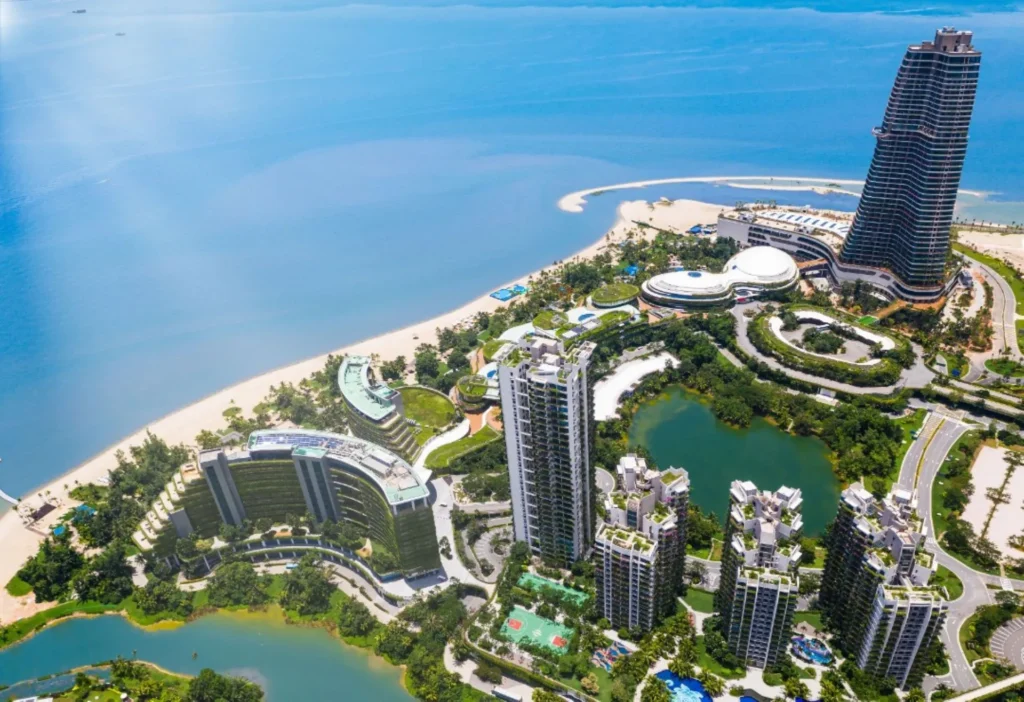
Dreaming of making Malaysia your second home? It’s a fantastic idea, but first, you need to check if you tick all the boxes for eligibility. The “Malaysia My Second Home” (MM2H) programme is open to citizens of countries recognised by Malaysia regardless of race, religion, gender or age. This means that applicants from most nations can consider this opportunity.
The financial requirements are pivotal and designed to ensure that participants can comfortably support themselves in Malaysia. Applicants below 50 years must show proof of liquid assets worth RM500,000 and offshore income of RM10,000 per month. For those aged 50 and above, the financial criteria are slightly relaxed, with the need to demonstrate liquid assets worth RM350,000 and offshore income of RM10,000 monthly.
Beyond finances, there are other considerations too:
- A valid medical insurance coverage from any company covers your stay in Malaysia.
- A medical report proving you’re in good health.
Upon successful application:
- Depending on passport validity, you’ll be granted a social visit visa for ten years.
This visa is renewable and allows multiple entries into the country, making travelling in and out a breeze.
Lastly it’s essential to know this programme does not allow permanent residency status or employment within Malaysia directly; however participants can still run businesses as subject to Malaysian laws.
Ticking all these boxes isn’t just about fulfilling legal requirements—it’s about ensuring you have a smooth transition into your new life under the Malaysian sun!
Application Process

Navigating the application process for Malaysia My Second Home (MM2H) may seem daunting at first, but with a step-by-step approach, you’ll find it’s quite manageable. This program offers non-Malaysians a chance to reside in Malaysia on a long-term basis, and understanding the application procedure is your first step towards this exciting journey.
Firstly, you need to meet certain financial requirements which demonstrate your capability to support yourself while living in Malaysia. For applicants below 50 years of age, you’re required to show proof of liquid assets worth a minimum of RM500,000 and an offshore income of at least RM10,000 per month. For those aged 50 and above, the financial criteria are slightly relaxed with a requirement for RM350,000 in liquid assets and an offshore monthly income of RM10,000. It’s crucial to have these documents ready as they form the backbone of your application.
Next up is preparing and submitting your application. You can either do this yourself or engage a licensed MM2H agent to guide you through the process. If you choose to apply on your own, ensure all forms are filled out correctly and all necessary documentation is included. The complete list of required documents can be found on the official MM2H website. Remember that attention to detail here can save you time by preventing unnecessary delays.
After submission comes the waiting game; processing times vary but typically range from three to six months. During this period your application undergoes thorough review by various Malaysian government agencies including immigration authorities and security checks.
Once approved congratulations! You’ll receive a conditional approval letter inviting you for an interview at the MM2H centre in Putrajaya Malaysia. Here’s where you’ll submit additional documents such as your medical report from any private hospital or registered clinic in Malaysia along with medical insurance covering your stay in Malaysia unless exempted due to age or unavailability.
To sum it up applying for MM2H requires careful planning preparation and patience but leads to rewarding outcomes allowing you enjoy life in beautiful Malaysia under this unique programme.
Financial Requirements
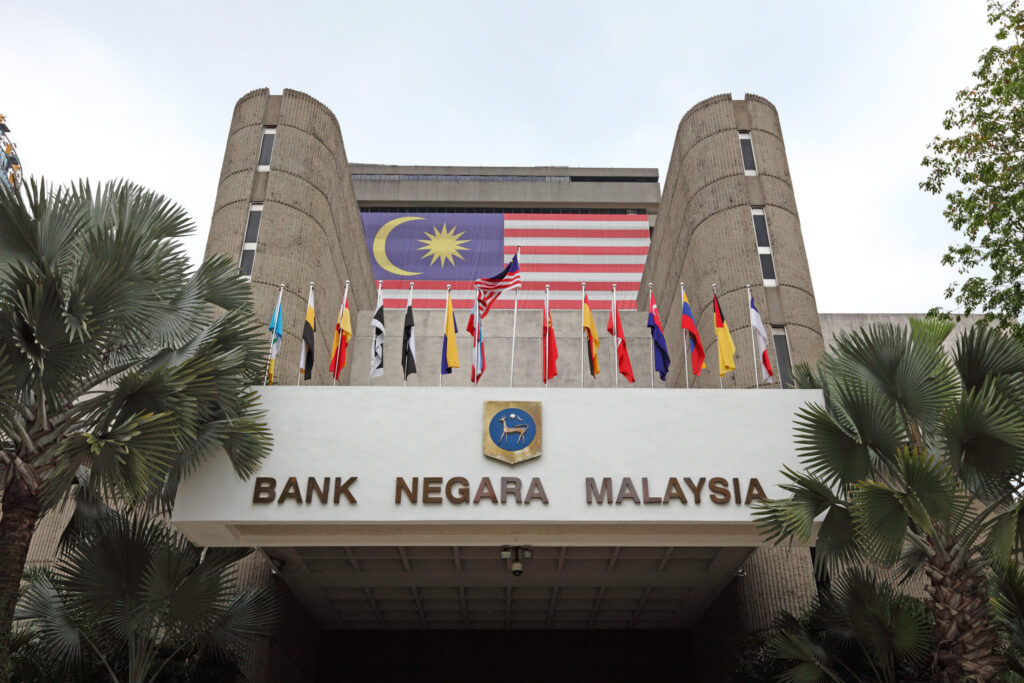
Understanding the financial requirements is crucial if you’re considering making Malaysia your second home. The Malaysian government has set specific monetary thresholds to ensure that participants in the “Malaysia My Second Home” (MM2H) programme can comfortably support themselves during their stay.
Applicants are required to demonstrate:
- Liquid assets worth at least MYR 1.5 million.
- A steady monthly offshore income of at least MYR 40,000.
Beyond finances, other considerations include:
- A valid medical insurance coverage from any company that covers your stay in Malaysia.
- A medical report proving you’re in good health.
- Applicants must spend 90 days per year in Malaysia to maintain their visa.
Upon successful application:
- You’ll be granted a social visit visa that can range from 5 years to permanent residency depending on the tier of application.
- This visa is renewable and allows multiple entries into the country, making traveling in and out a breeze.
These requirements aim to maintain a certain standard of living and ensure that MM2H participants contribute positively to the local economy.
Additionally, upon approval of your application, you might need to make a fixed deposit into a Malaysian bank account depending on your application tier and the incentives you opt for.
Updated Financial Overview:
- Liquid Assets Requirement: MYR 1.5 million
- Monthly Offshore Income: MYR 40,000
- Possible Fixed Deposit for property investment incentives.
Engaging with an authorised agent can provide insights into how best to navigate these requirements and leverage your current
It’s also worth noting that there are ways to reduce these financial burdens through various incentives provided by the government. Engaging with an authorised agent can provide insights into how best navigate these requirements and possibly leverage your current financial standing more effectively.
Remembering deadlines is essential too; late submissions or failure to comply with yearly check-ins can result in penalties or cancellation of your MM2H visa. Staying on top of these regulations will ensure a smooth experience as you enjoy your time in Malaysia without unexpected hitches.
By keeping these figures in mind and planning accordingly you’ll be well on your way towards embarking on this exciting chapter in Malaysia with confidence and ease.
Living in Malaysia
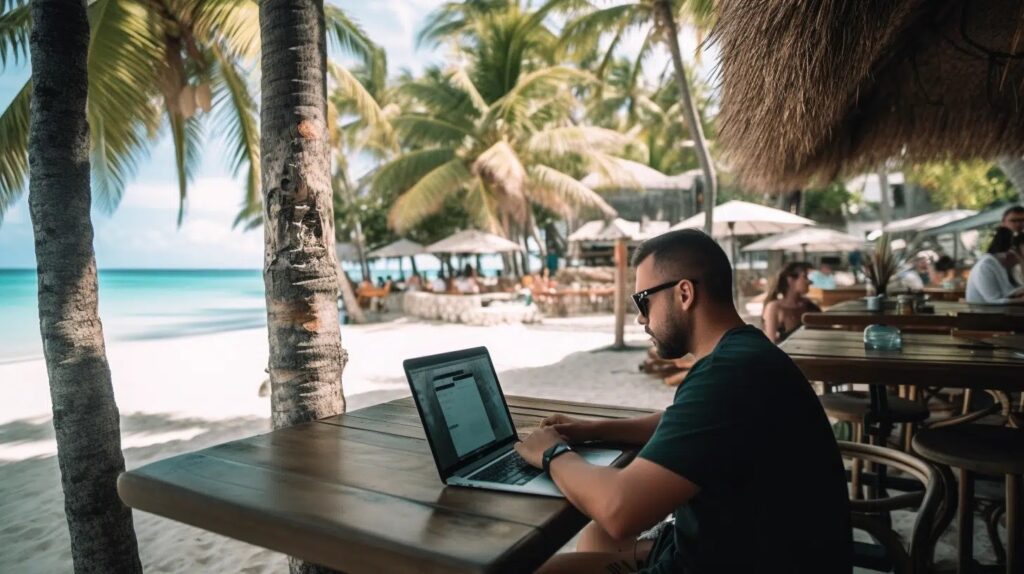
Embarking on a life in Malaysia offers an intriguing blend of traditional charm and modern convenience, making it an alluring destination for many looking to call it their second home. The country’s vibrant culture, stunning landscapes, and welcoming communities provide an enriching backdrop for daily life. However, understanding the practical aspects such as the cost of living and healthcare system is essential for anyone considering this move.
Cost of Living
When comparing Malaysia to Western countries, you’ll find that your money stretches further here. Housing, groceries, and transport are significantly more affordable, though this can vary depending on the city or region you choose to live in. For example:
| Item | Kuala Lumpur | Penang |
|---|---|---|
| Monthly rent | $500 – $1000 USD | $400 – $800 USD |
| Meal at a restaurant | $3 – $5 USD | $2 – $4 USD |
| Transportation | $20 – $50 USD | $15 – $40 USD |
These figures are indicative and can fluctuate based on lifestyle choices and specific locations within these areas.
Utilities like water, electricity, and internet are also reasonably priced. You’ll find that with careful budgeting, a comfortable lifestyle is entirely achievable without breaking the bank.
Living outside major cities provides even more savings. Many expatriates enjoy substantial houses or condominiums with amenities such as swimming pools and fitness centres at prices far lower than what they’d pay back home.
Grocery shopping offers both local produce and international goods; while local markets are cheap options for fresh fruits and vegetables, imported products can be found at higher-end supermarkets but come with increased costs.
Transportation in Malaysia includes modern public transit systems in larger cities as well as affordable taxis and ride-hailing services like Grab. Owning a car is possible but not necessary due to these convenient options.
Healthcare System
Malaysia’s healthcare system stands out for its quality service at competitive prices. Both public hospitals funded by government revenue from residents’ taxes and private hospitals offering premium services exist throughout the country.
Public healthcare facilities provide competent care at very low cost but may have longer wait times for non-emergency services compared to private counterparts.
Private hospitals offer faster service with modern facilities often staffed by internationally trained doctors who speak fluent English. Although more expensive than public healthcare, these institutions remain much more affordable when compared to Western standards.
For expatriates considering long-term residency under the “Malaysia My Second Home” (MM2H) programme or otherwise working in Malaysia health insurance is strongly recommended to access private healthcare comfortably.
Many opt for comprehensive health insurance packages which cover both outpatient treatments and emergency medical procedures ensuring peace of mind during their stay.
In conclusion embarking on your journey in Malaysia presents an opportunity not just for cultural enrichment but also significant financial advantages particularly when it comes to everyday expenses health care access remains exemplary providing both affordability through public institutions alongside high-quality options within the private sector.
Best Places to Live in Malaysia for Expats
Malaysia offers a range of attractive living options for expats that cater to diverse preferences and needs. From the bustling city life of Kuala Lumpur to the tranquil beaches of Langkawi, each place provides its unique blend of benefits. Whether you seek a vibrant urban environment or a peaceful seaside retreat, Malaysia has something to offer. The following table details some of the most popular places for expats to live in Malaysia, highlighting the advantages of each location to help you make an informed decision.
| Place | Advantages |
|---|---|
| Kuala Lumpur |
|
| Penang |
|
| Johor Bahru |
|
| Kota Kinabalu |
|
Kuala Lumpur
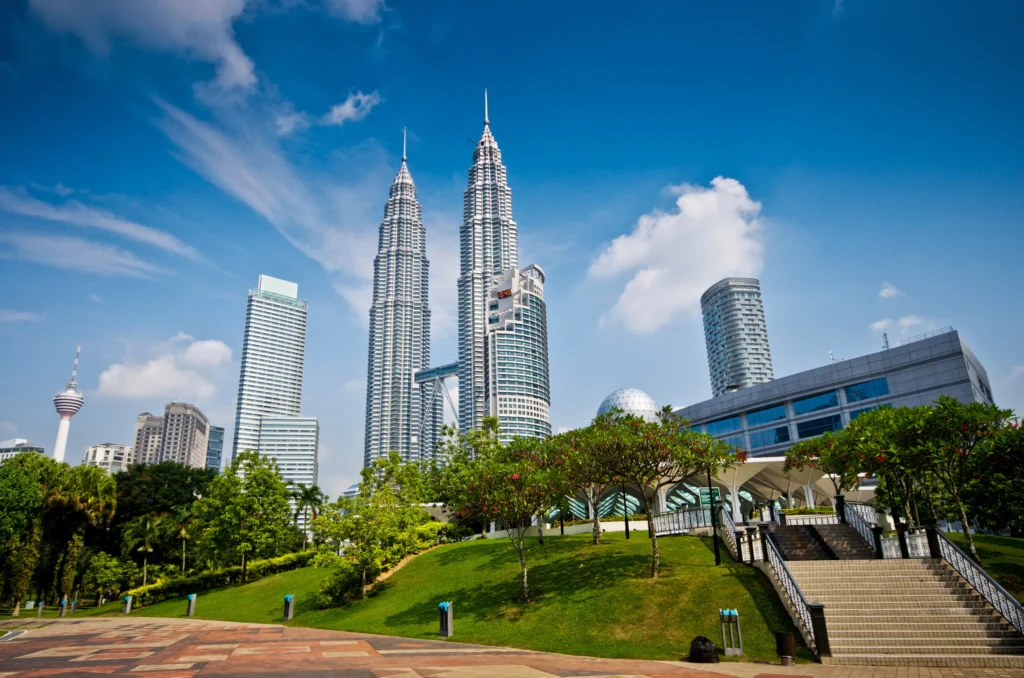
Kuala Lumpur, the bustling capital of Malaysia, stands out as a top choice for expats seeking an urban lifestyle. With its modern skyline dominated by the iconic Petronas Twin Towers, the city is a melting pot of cultures. You’ll find an array of international schools, making it an ideal option for families. The healthcare system is first-rate with well-equipped hospitals and clinics catering to various medical needs.
- Housing: Offers a variety of options from luxury condos to comfortable family homes.
- Lifestyle: A vibrant mix of dining, shopping, and entertainment options.
- Transportation: An efficient public transport network including the MRT and LRT systems simplifies commuting.
Living in Kuala Lumpur means you’re at the heart of Malaysia’s economic and cultural activity. Despite its cosmopolitan nature, green spaces like KLCC Park offer breaths of fresh air amidst the urban environment.
Langkawi
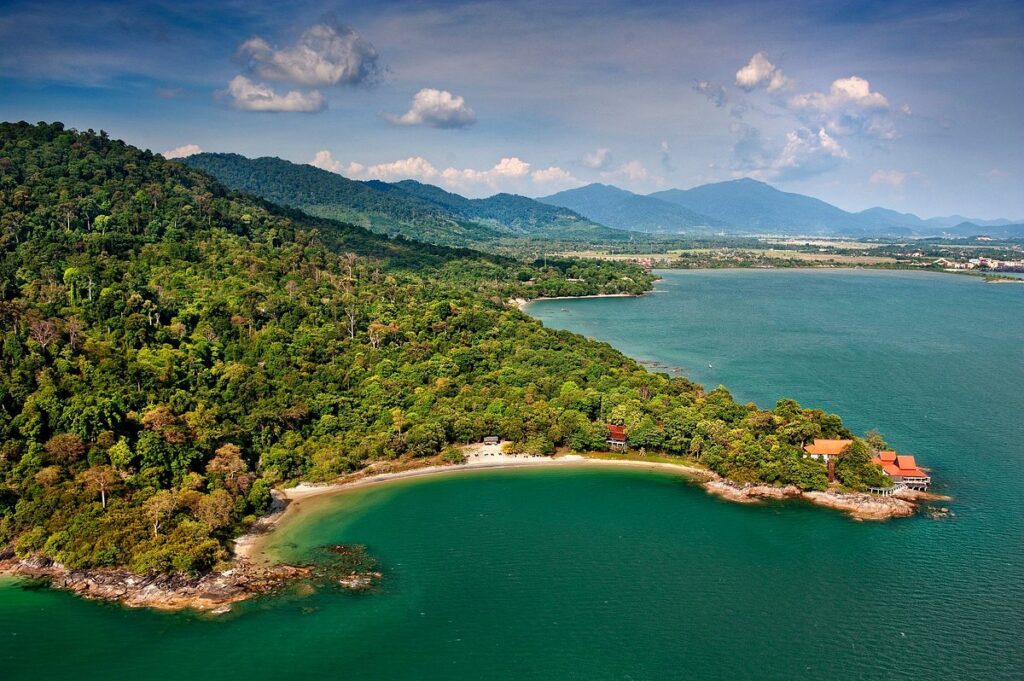
Langkawi is paradise personified with its stunning beaches and lush jungle interiors. This archipelago on Malaysia’s west coast is perfect for expats craving a tranquil beachside life. It’s also duty-free status makes living costs surprisingly affordable compared to other coastal destinations globally.
- Community: Tight-knit expat communities thrive here, offering a sense of belonging.
- Activities: From water sports to exploring nature parks, there’s no shortage of outdoor adventures.
The laid-back pace in Langkawi contrasts sharply with Kuala Lumpur’s hustle and bustle. For many expats, this serene setting provides an idyllic backdrop to work remotely or enjoy retirement under the sun.
Penang
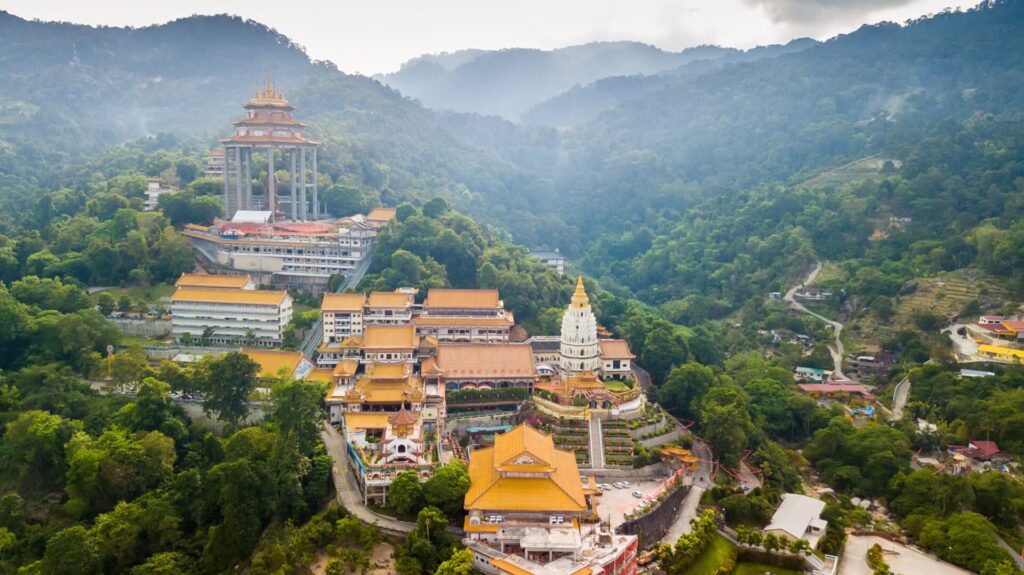
Penang strikes a balance between cultural richness and modern comfort. Known as the ‘Pearl of the Orient’, it has a historical core in George Town recognised by UNESCO alongside beaches that lure sunseekers year-round. Its culinary scene deserves special mention – often hailed as the food capital of Malaysia.
- Education: International schools are available for those moving with children.
- Healthcare: High-quality medical facilities are accessible throughout Penang.
Life in Penang offers a spectrum ranging from heritage tours through ancient streets to relaxing days spent along Batu Ferringhi Beach. For expats after culture plus convenience, Penang ticks all boxes.
Kota Kinabalu and Labuan (Tax Haven)
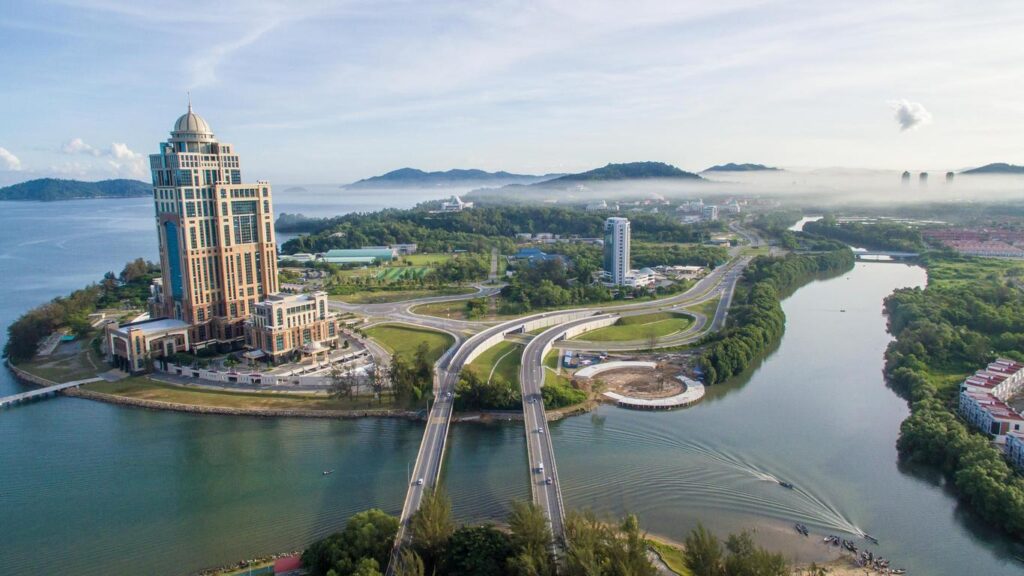
Positioned on Borneo’s northwest coast beside the South China Sea lies Kota Kinabalu – the gateway to natural wonders, including Mount Kinabalu and Tunku Abdul Rahman Marine Park. Its appeal lies not just in scenic beauty but also in affordability relative to West Malaysian cities.
- Environment: Proximity to rainforests and coral reefs encourages exploration.
- Cost of Living: Generally lower than Malaysia’s larger cities while still providing essential amenities.
Choosing Kota Kinabalu and the Labuan tax haven means embracing adventure right on your doorstep while enjoying everyday conveniences within reach – appealing to those seeking a balance between wilderness excursions and comfortable living standards.
Jahor
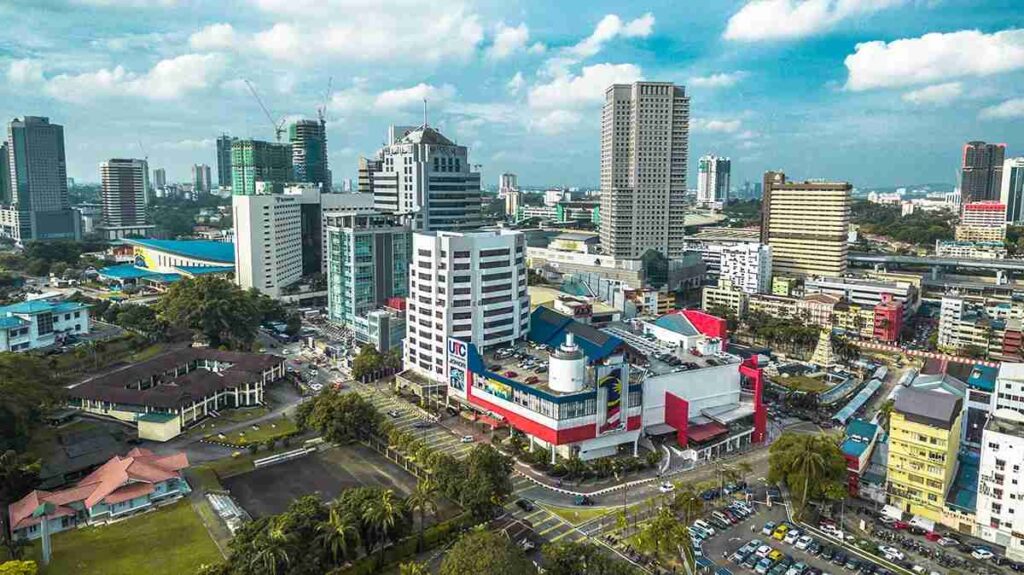
Jahor (often spelled Johor) Bahru presents another facet of Malaysia tailored towards those looking southwards towards Singapore which sits just across the causeway – representing unique opportunities particularly for business-minded individuals or those whose work revolves around Singapore but who seek more affordable living arrangements.
Exploring Malaysia
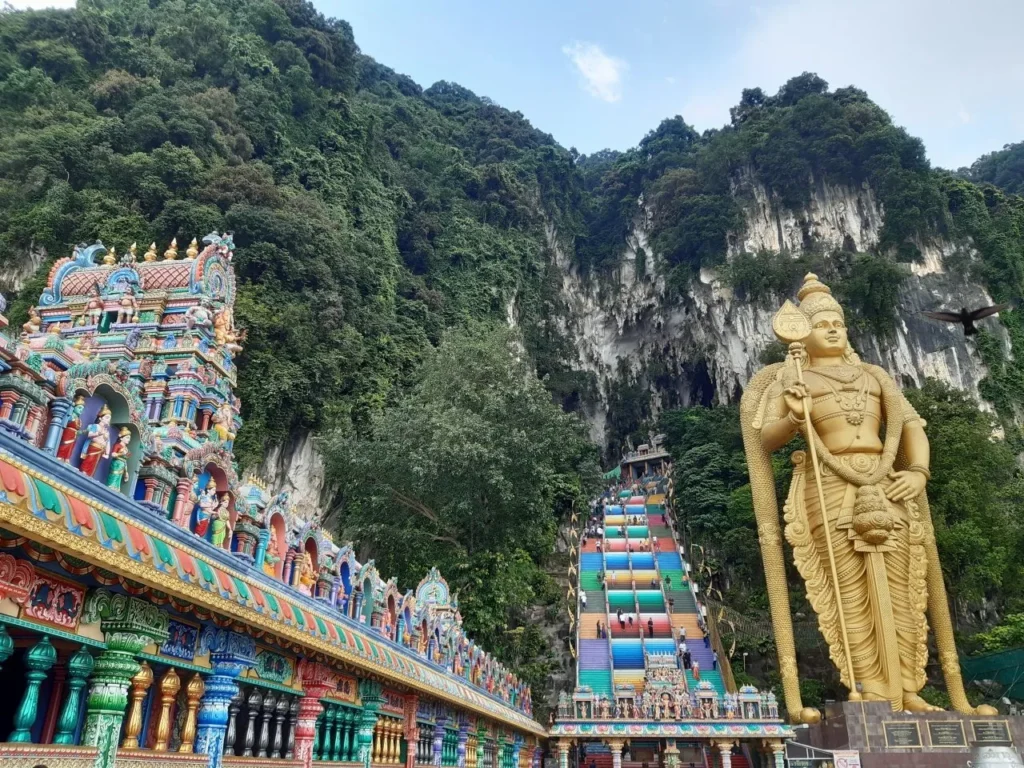
Tourist Attractions
Diving straight into the heart of Malaysia, you’ll find a treasure trove of tourist attractions that beckon travellers from every corner of the globe. From the iconic Petronas Twin Towers in Kuala Lumpur, standing tall as a testament to modern architectural prowess, to the serene beaches of Langkawi, where golden sands meet crystal-clear waters, there’s no shortage of sights to behold.
- Petronas Twin Towers: A must-visit landmark offering breathtaking views from its skybridge.
- Mount Kinabalu: Challenges adventurers with its awe-inspiring peak in Borneo.
- Batu Caves: Captivates with its limestone cliffs and Hindu temples inside natural caves.
Each location tells a unique story of Malaysia’s rich history and vibrant culture. For instance, Penang’s George Town enchants with its well-preserved colonial buildings and vibrant street art scenes. Meanwhile, Sipadan Island is globally renowned for its extraordinary diving spots teeming with marine life.
Exploring these destinations offers visual delights and an insight into Malaysia’s multifaceted allure.
Cultural Experiences
Venturing beyond mere sightseeing into experiencing Malaysia’s cultural heritage deepens your connection to this fascinating country. The vibrant festivals like Hari Raya Aidilfitri and Deepavali showcase the harmonious blend of cultures thriving within Malaysia; they invite visitors to partake in celebrations filled with traditional music, dance, and mouth-watering feasts.
- Hari Raya Aidilfitri: Marks the end of Ramadan with open houses and delicious feasting.
- Deepavali: Known as the Festival of Lights, celebrated by the Hindu community with brightly lit streets and fireworks.
Engaging in traditional Malaysian arts can be another enriching experience. Batik painting workshops offer a hands-on approach to understanding this intricate craft while enjoying a leisurely stroll through night markets like those found in Kota Bharu provides insights into local lifestyles and culinary delights.
For those intrigued by history and architecture, visiting UNESCO World Heritage Sites such as Melaka showcases centuries-old buildings influenced by European colonial powers alongside ancient traditions still alive today.
Malaysia’s cultural tapestry is woven from threads of diverse ethnic groups; each thread adds colour and texture to what it means to experience Malaysia truly. Through immersive activities like joining a homestay programme or attending cultural workshops, you gain more than just memories—you become part of Malaysia’s ongoing story.
Conclusion
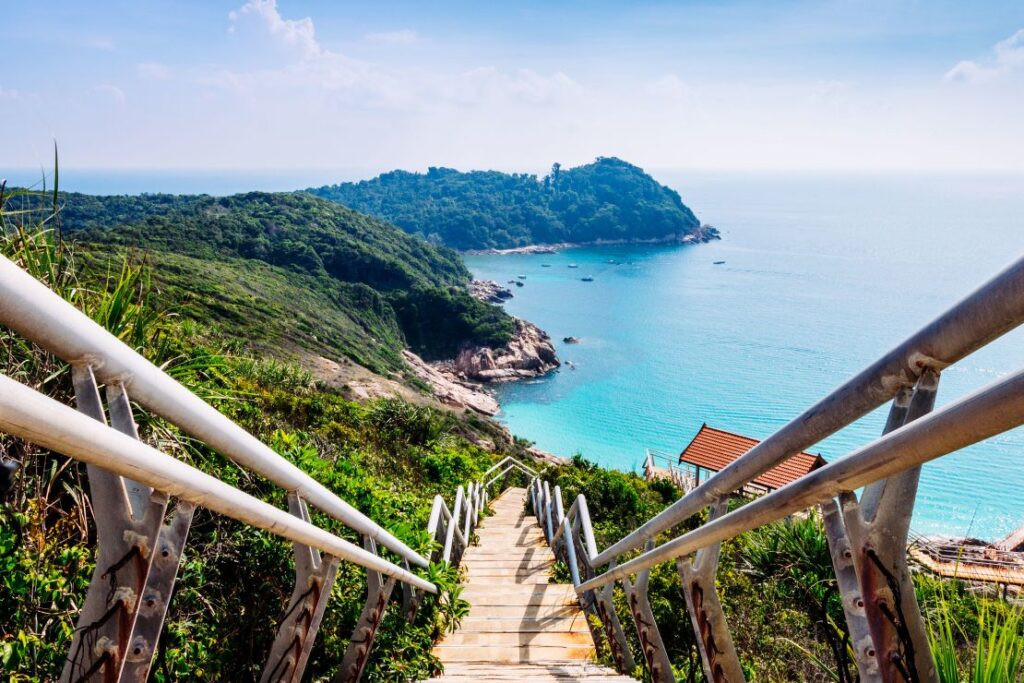
Exploring the Malaysia My Second Home (MM2H) programme reveals its numerous benefits and some challenges that potential applicants might face. This initiative provides a unique opportunity for expatriates to enjoy long-term residency in Malaysia, a country known for its rich cultural heritage, stunning landscapes, and economic stability.
Key takeaways from this exploration include:
- Eligibility Requirements: Understanding them is crucial. They vary by age, with different financial criteria for applicants below and above 50 years of age.
- Financial Commitments: Applicants must meet specific financial thresholds to show they can sustain their living in Malaysia without employment.
Here’s a brief overview of the financial requirements:
| Age Group | Fixed Deposit | Monthly Income |
|---|---|---|
| Below 50 | RM300,000 | RM10,000 |
| Above 50 | RM150,000 | RM10,000 |
- Benefits: Beyond the allure of residing in beautiful surroundings, participants gain multiple year visas that significantly ease travel into and out of Malaysia. Other perks include bringing along dependents or even hiring foreign domestic helpers.
- Challenges: Despite its attractiveness, navigating through the application process can be daunting due to bureaucratic hurdles or changes in policy. Hence staying informed through official channels or consulting with experienced agencies becomes essential.
To sum up your MM2H journey requires thorough preparation and understanding of what lies ahead. Whether it’s immersing yourself in Malaysia’s vibrant culture or leveraging its strategic location for travel across Southeast Asia MM2H offers an unparalleled experience with lasting benefits. Embracing this opportunity means joining a diverse community of expatriates who have found a second home in Malaysia’s welcoming arms. Remember proper planning and adherence to guidelines pave the way for a smooth transition into your new Malaysian lifestyle.
Frequently Asked Questions (FAQ)
1. What are the primary advantages of joining the MM2H programme?
The MM2H programme offers numerous benefits including a renewable ten-year visa, multiple-entry privileges to facilitate travel in and out of Malaysia, duty-free importation of personal effects, and the option to purchase vehicles at preferential rates. Moreover, its strategic location in Southeast Asia makes it an ideal base for exploring the region.
2. Who is eligible to apply for the MM2H programme?
The programme is open to citizens of countries recognized by Malaysia, irrespective of race, religion, gender, or age. Applicants must meet specific financial and medical requirements, such as demonstrating adequate liquid assets and monthly offshore income, and having comprehensive medical insurance.
3. Can I bring my family under the MM2H programme?
Yes, under the MM2H programme, you can include your spouse and children below 21 years of age as dependents. This allows families to relocate and live together in Malaysia, offering a unified expatriate experience.
4. What recent changes have been made to the MM2H programme?
Recent modifications to the MM2H programme include increased financial requirements, such as higher proof of liquid assets and a significant uptick in the required monthly offshore income. The programme now also encourages property investment by offering incentives for investing in Malaysian real estate, and the visa duration has been adjusted from ten to five years.
5. What should I consider before applying to the MM2H programme?
Before applying, consider the financial obligations, such as the minimum liquid assets and monthly income required, and ensure you have comprehensive medical insurance. It’s also advisable to understand the long-term commitment to living in Malaysia, the cultural and lifestyle adjustments needed, and the benefits of residing in a strategically located, culturally rich, and economically stable country like Malaysia.
Learn More
Offshore Freedom™ is a boutique coaching and consulting firm that helps investors and entrepreneurs live and invest internationally. We help our clients grow their businesses, pay less taxes, buy more real estate, and take advantage of global residency and citizenship by investment programs worldwide.
Schedule a 1 on 1 consultation with Dan Merriam, and let us help you design the life of your dreams and live the Offshore Freedom™ lifestyle. Ask questions and get answers about international real estate, tax planning, offshore banking, second residencies, citizenship by investment, lifestyle design and more.
This article is for informational purposes only; it should not be considered financial, tax planning, investment or legal advice. Consult a certified financial or investment professional in your jurisdiction of interest before making any major financial or investment decisions.
Writer in Tax Reduction, International Tax Planning, Travel, Citizenship by Investment, Second Residence, Real Estate Investing, Malayisa MM2H, Malaysia My Second Home, Living in Malaysia, Asset Management, Lifestyle Planning, Countries with the Lowest Taxes, Company Formation, Offshore Banking, Asset Protection, Technology, Entrepreneurship

